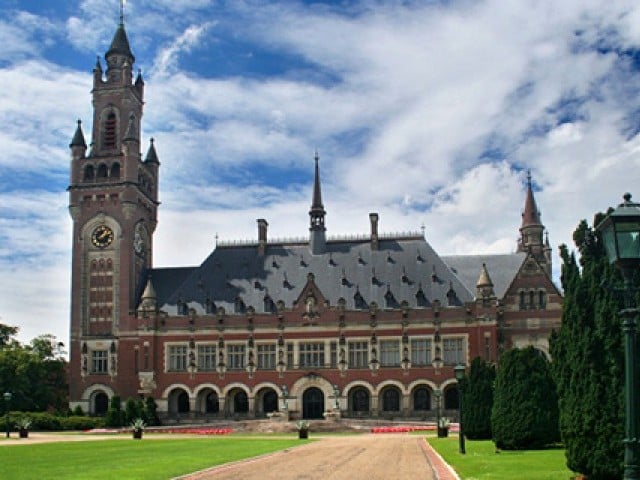UK victory over India at ICJ suits Pakistan

ISLAMABAD: All eyes are on the United Nations General Assembly as it elects one judge to the International Court of Justice (ICJ) on Monday (tomorrow) from two contestants – one from India and the other from the United Kingdom.
The election is significant for Pakistan in view of the case of Indian spy Kulbhushan Jadhav, hearing of which will soon be resumed at ICJ.
Four judges – from France, Somalia, Brazil and Lebanon – have already been elected to ICJ. The total number of judges at the international court is 15, and a third of them are up for re-election every three years.
It is learnt that both UK and India are trying their best to have their respective nominees appointed as a permanent judge of the ICJ. Dalveer Bhandari has been fielded by India and Christopher Greenwood by the UK.
Since 1946, England has not lost a single election for a seat of the ICJ judge, and it will be interesting to see which of the two candidates gets more votes in the 193-strong UN General Assembly.
A senior Pakistan jurist, who has expertise in international law, believes that the election will be significant from Pakistan’s perspective as the ICJ is going to hear Jadhav’s case soon.
He urged Pakistan’s Foreign Office and the Pakistan’s ambassador to the US to put their weight behind the English judge as the victory of an Indian judge, and that too for a period of nine years, may affect the country’s interest.
Legal experts stressed the need for revamping the Foreign Office to establish a cell in order to monitor affairs related to international arbitrations. Pakistan has already appointed former chief justice Tassaduq Hussain Jillani as ad hoc judge for Jadhav’s case being heard by the ICJ at The Hague.
Justice Jillani, also known as ‘The Gentleman Judge’ for his mild demeanor, was appointed to the Lahore High Court by former prime minister Benazir Bhutto in 1990s. He has authored the Supreme Court’s judicial anthem and was also among the SC judges who refused to take oath under the Provisional Constitutional Order on November 3, 2007, when the then General (retd) Pervez Musharraf had imposed an emergency.
As CJP, Justice Jillani’s decisions on the rights of religious minorities were compared to the outlawing of racial segregation in the US.
The legal experts believe that if the Indian judge does not get elected to the ICJ on a permanent basis, it may appoint an ad hoc judge for Jadhav’s case only. Pakistan will submit its reply in the case on December 13 to the ICJ.

0 comments here: